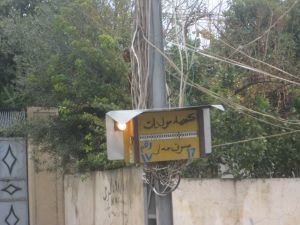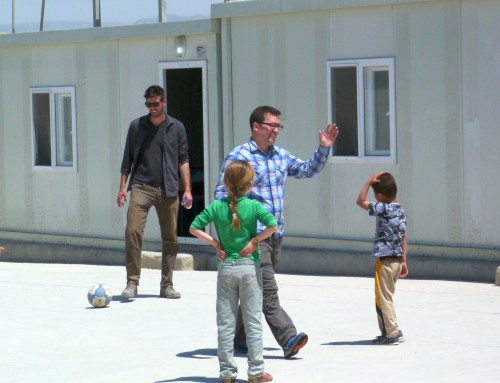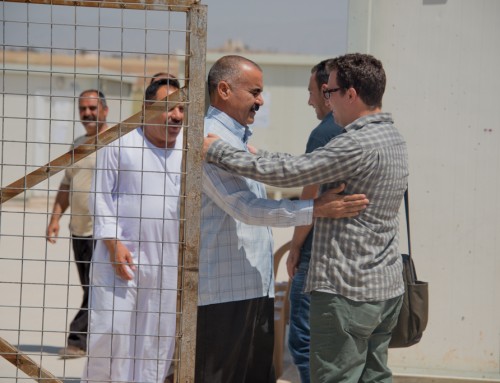Visiting My Daughter in Iraq (part 2)
She lived upstairs in what we would call a duplex. It was surrounded by a wall, and there was not a yard, though several neighbors had potted plants barely clinging to life. The floor and walls were all tile, and many of the wall tiles contained scripture verses, things to remember, or notes to one another on them in wipe-off marker. Not wanting to damage the tiles, they were reluctant to hang anything. There was the big switch on the wall for changing from “city” power to the neighborhood generator.
 No one here in the US spends much time discussing electricity. I am afraid we take it much for granted. Not so in Suly, where a good portion of each day at school was spent by the students discussing the electricity or lack of it at the moment. In the girls’ house, it was very important to notice the switch in the middle of the wall in the living room to see if the house was on “city” or “neighborhood” power.
No one here in the US spends much time discussing electricity. I am afraid we take it much for granted. Not so in Suly, where a good portion of each day at school was spent by the students discussing the electricity or lack of it at the moment. In the girls’ house, it was very important to notice the switch in the middle of the wall in the living room to see if the house was on “city” or “neighborhood” power.
The neighborhood generator was not as powerful, and while you could run lights and even charge your computer, other chores like vacuuming, doing laundry, running blow dryers or operating any two appliances at once, would cause the generator to blow a circuit, and you needed to go reset it. Of course the whole house would have lost power as a result and the neighbors were
always watching, making your walk to circuit breaker a walk of shame. The girls got to the point where they could tell you the amperage of most appliances and thus not ever go over their limit.
 Each day at school I heard about how much city power this or that person got the night before, and how it allowed so much TV or not. If you only got city power at night, that was when you did your chores, and were then sometimes lacking in sleep the next day. I am not too sure how the “city” power was that much better, though it seemed to be. The power lines above the houses were a regular web with no seeming pattern or reason.
Each day at school I heard about how much city power this or that person got the night before, and how it allowed so much TV or not. If you only got city power at night, that was when you did your chores, and were then sometimes lacking in sleep the next day. I am not too sure how the “city” power was that much better, though it seemed to be. The power lines above the houses were a regular web with no seeming pattern or reason.
Apparently, the residents would find a “live” line and attach to it to go to their house. That happened over and over, and it really is a wonder that it worked at all, or that more lives were not lost due to electrocution while hooking up to the power. At least the stove was gas, not electric, so you could cook without electricity, but it was not natural gas piped in like we have, but bottled propane, sitting right in the house, yet another source of danger that we are not used to. The girls learned to live with all of it and tended not to give it much thought after a while. It was just the way they lived.
And cooking was a big part of life and hospitality… more on that next time.
(Read part 1 here or go on to part 3 here!)




